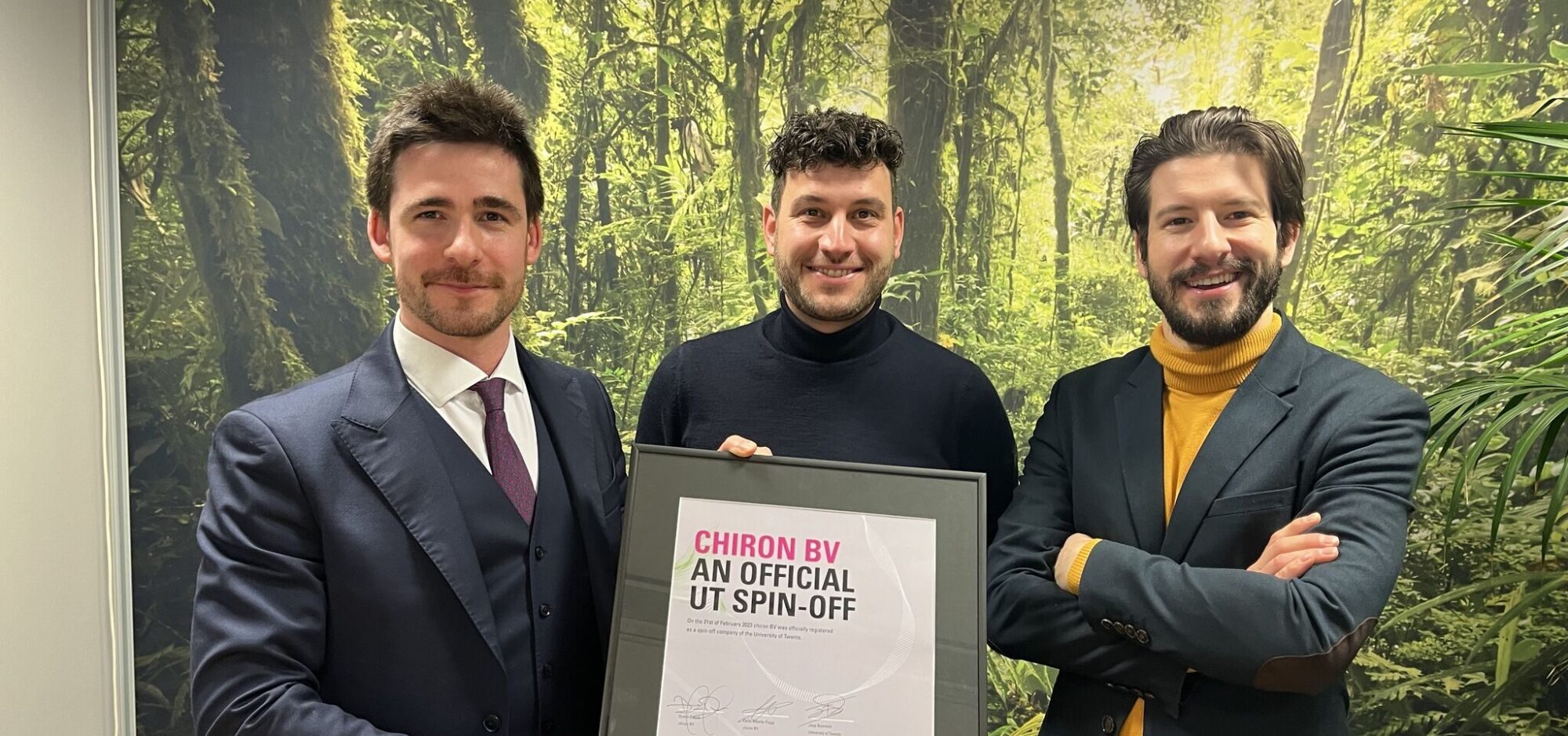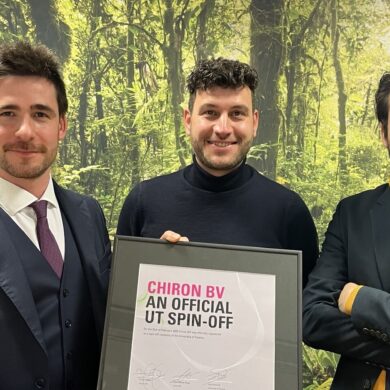Animal testing is often seen as a necessary evil for which there is no alternative. Dustin Dopsa and Carlo Alberto Paggi from chiron believe there is an alternative. With their organ-on-a-chip technology, the UT spin-off has found a way to mimic physiological conditions outside the human body, enabling chiron to test medicines for osteoarthritis and rheumatoid arthritis, amongst others. “We want to run a successful business, but we also want to generate real impact.”
Entrepreneurial ambitions
After killing upwards of 40 rabbits and 80 mice for research that had little impact on helping to find a cure for real people, Carlo realized this research method was not sustainable. “Sure, our research group published some interesting articles, but it had zero impact on finding treatments for osteoarthritis or rheumatoid arthritis. I was a little worried about the ethics of the study, and I was left with a nagging feeling about how we could’ve used different models to get a better output. So I decided to search for a better solution and spent my PhD developing organ-on-chip technology.” Towards the end of his PhD, Carlo mentioned his entrepreneurial ambitions to Dustin, a friend from studies at Politecnico di Milano, who had also recently moved to the Netherlands. Dustin: “We started talking about the entrepreneurial ambitions we both had, and over a couple of drinks started building the idea of what chiron could potentially become. The rest is history!”
Better predictions
The organ-on-a-chip technology is the foundation of chiron. Carlo: “It’s a small device into which you can place human cells from the body, and mimic the environment that those would perceive in the human body. Our devices mimic the knee, and focus on osteoarthritis and rheumatoid arthritis, meaning we can simulate those conditions on a chip. It also saves the lives of animals while doing so.” And it doesn’t just benefit the animals, says Dustin: “With this type of testing, we’re sacrificing fewer animals, but on top of that, our technology provides a better way of studying how a new medicine may behave in the body. Animal models, used for drug testing, are often not a good way of actually predicting what they’re supposed to predict. So the animal experiments for a new medicine could be successful, but the subsequent human trial could fail and then you’re back to square one.”
More alive
While Carlo brings in the technical know-how, Dustin oversees the strategic vision and the business side of things. Dustin: “Carlo came up with the technology, but I love that he also has the entrepreneurial spirit and mindset. Not many scientists have that capability, so I’m thankful for that. It’s great to build something ourselves and create an organization where we feel at home.” Carlo adds: “From the start, we have been extremely direct and honest with one another. We knew we would invest a lot of time in the company, so we had to make sure that we could work together. Novel T’s UT Challenge in 2021 was a fun test for that. We discovered that we are really well aligned, and a very complementary pair; I love what Dustin brings to the table. We face challenges together and it’s not always perfect, but I feel more alive when I work on chiron.”
Excited about the challenges
The impact chiron can make is closer to reality than fiction. Dustin: “It’s an interesting moment for organ-on-chip technology because things are absolutely starting to take off. In the United States, the Food & Drug Association (commonly referred to as “the FDA”) passed a bill enabling pharmaceutical companies to use in-vitro technologies, such as organ-on-a-chip, instead of animal testing. That definitively sets the tone for what’s next.” Carlo adds: “And in terms of arthritis: we have a massive portion of the population reaching retirement age and beyond, which also means that the number of people getting the disease will increase drastically over the next decade. That’s why we want to advance the technology now, to potentially solve huge problems in the future. We want to create an impact. Eventually, we want to provide patients with the right therapies and treatments and later expand to other diseases as well.” Dustin agrees. “In ten years from now, I think that chiron will be operating on a level that Carlo and I can’t even fathom at the moment. We’re excited for what’s to come, and the challenges we’ll have to tackle along the way.”



